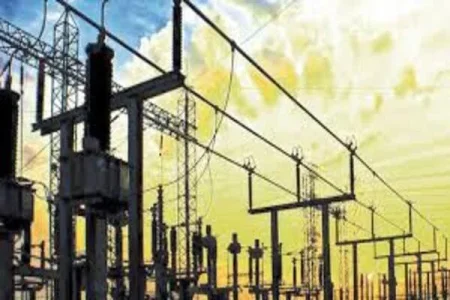
In a bid to alleviate the widespread blackout that gripped Nigeria, the Transmission Company of Nigeria (TCN) has successfully restored the national power grid, a vital lifeline for the nation's energy infrastructure. The disruption, as announced by TCN, was attributed to limitations in gas supply, exacerbating the instability of the grid. The incident, occurring on Thursday, March 28 at 4:20 pm, saw a sudden imbalance in the grid's stability, compounded by the unexpected failure of Egbin generation's turbine 3, resulting in an additional loss of 167MW load and the subsequent collapse of the grid. TCN swiftly sprung into action, with full grid recovery achieved by 10 pm on the same day. The restoration comes as a relief to millions of homes and businesses affected by the blackout, marking a crucial step towards restoring normalcy to the nation's energy supply.
The grid disturbance sent shockwaves across Nigeria, plunging millions into darkness and disrupting essential services. Distribution companies (DisCos) reported inactive feeders, leading to widespread blackouts nationwide. TCN highlighted the abrupt plummet from 2,984 megawatts to zero within an hour, prompting all 21 connected plants to halt operations by 5 pm. Eko Electricity Distribution Company (EKEDC) echoed the nationwide blackout, emphasizing the gravity of the situation. The blackout underscored the vulnerability of Nigeria's energy infrastructure, exposing the challenges posed by gas constraints and the need for robust contingency measures to prevent future grid failures.
Amidst the chaos, TCN's swift response and successful restoration efforts offer a glimmer of hope for Nigeria's energy future. The company's commitment to stability and reliability in the face of adversity is commendable. Moving forward, TCN must address underlying issues such as gas supply constraints and equipment failures to bolster the resilience of the national grid. Collaboration between stakeholders, including government agencies, distribution companies, and industry experts, will be essential in implementing long-term solutions to safeguard Nigeria's energy security. As the nation navigates through these challenges, a resilient and robust energy infrastructure remains paramount to powering Nigeria's aspirations for growth and development.




